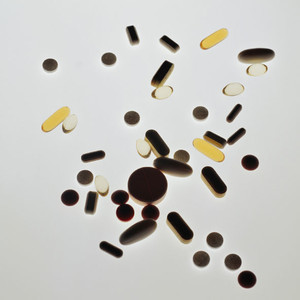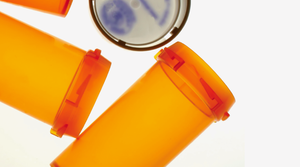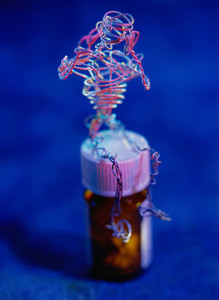With increasing concern over price increases for medicines a new concern being raised is that increased competition in the pharma industry does not always lead to lower prices.
Competition does not curb high drug prices
Generics/General
|
Posted 06/01/2017
 0
Post your comment
0
Post your comment

Competition in a particular market normally leads to lower prices for consumers. However, the exact opposite seems to be happening in the pharmaceutical industry, where, despite competition, prices are still rising.
Take erectile dysfunction drug Viagra (sildenafil). Pfizer raised the list price of Viagra by 13% in June 2016. This was followed, less than a week later, by Eli Lilly increasing the price of its competing drug Cialis (tadalafil) by the same percentage.
Despite being rivals this has been a practice of the drug industry for many years. In fact, Pfizer and Eli Lilly have been increasing the prices on their erectile dysfunction drugs within weeks of each other—sometimes even on the same day—keeping the list price of each pill within a few dollars. This kind of duopoly perhaps explains why pharmaceutical prices continue to rise despite competition. In addition, patients, unlike consumers for other goods, do not tend to want to change when they have a drug that is working for them, despite price increases. In addition, some insurance companies have contracts that prevent them from switching to cheaper drugs.
But it is not just erectile dysfunction drugs that are coming under increased scrutiny for price rises. US Senator Bernie Sanders and US Congressman Elijah E Cummings sent a letter on 4 November 2016 asking the US Department of Justice and the Federal Trade Commission to investigate potential collusion among pharmaceutical companies that manufacture diabetes products. They identify three diabetes drugmakers that have continuously raised their prices over the years. In ‘numerous instances’, they say, ‘the price increases have mirrored one another precisely’. For example ‘in May 2014, Sanofi and Novo Nordisk each raised their insulin prices by 16.1% within a day of each other. Six months later, the companies both raised the medication price by 11.9%’. They add that ‘there have been 13 reported instances of such tandem price increases between those two companies since 2009’. They add that ‘Eli Lilly has also on several occasions matched price increases of its insulin products with Novo Nordisk’. Such acts they say ‘may not simply be a case of “shadow pricing” but may indicate possible collusion’.
According to Senator Sanders and Congressman Cummings the prices of insulin medications, which are used by about six million Americans to treat diabetes, have skyrocketed in recent years. In their letter they say that the cost of insulin more than tripled between 2002 and 2013, from US$231 to US$736 per year per patient.
It is not the first time Senator Sanders and Congressman Cummings have highlighted increases in drug prices. They pointed to ‘staggering price increases’ in the range of 390−8,200% across 10 products and asked 14 generics makers to submit detailed information on the reasons for this [1]. In November 2015, the Affordable Drug Pricing Task Force was set up. The task force aims ‘to combat the skyrocketing costs of pharmaceuticals’ [2].
The freedom to increase, rather than reduce, prices in the face of competition is one reason why US spending on prescription drugs has surged by almost 10% on average annually in recent years to US$310 billion in 2015, according to the IMS Institute for Healthcare Informatics.
Related articles
Generic injectable prices stay high even after shortages resolved
Senator calls for FTC to investigate drugmakers for antitrust violations
References
1. GaBI Online - Generics and Biosimilars Initiative. Investigation into huge price increases for generics in the US [www.gabionline.net]. Mol, Belgium: Pro Pharma Communications International; [cited 2017 Jan 6]. Available from: www.gabionline.net/Generics/General/Investigation-into-huge-price-increases-for-generics-in-the-US
2. GaBI Online - Generics and Biosimilars Initiative. US politicians form Affordable Drug Pricing Task Force [www.gabionline.net]. Mol, Belgium: Pro Pharma Communications International; [cited 2017 Jan 6]. Available from: www.gabionline.net/Generics/General/US-politicians-form-Affordable-Drug-Pricing-Task-Force
Permission granted to reproduce for personal and non-commercial use only. All other reproduction, copy or reprinting of all or part of any ‘Content’ found on this website is strictly prohibited without the prior consent of the publisher. Contact the publisher to obtain permission before redistributing.
Copyright – Unless otherwise stated all contents of this website are © 2017 Pro Pharma Communications International. All Rights Reserved.
Source: Investopedia, Reuters, Sen Bernie Sanders
Research
Japan’s drug shortage crisis: challenges and policy solutions
Saudi FDA drug approvals and GMP inspections: trend analysis
EMA launches European shortages monitoring platform to tackle persistent medicine shortages

Generics/General Posted 03/12/2024
FDA releases one-year progress report for the Generic Drug Cluster

Generics/General Posted 28/10/2022
The best selling biotechnology drugs of 2008: the next biosimilars targets








Post your comment